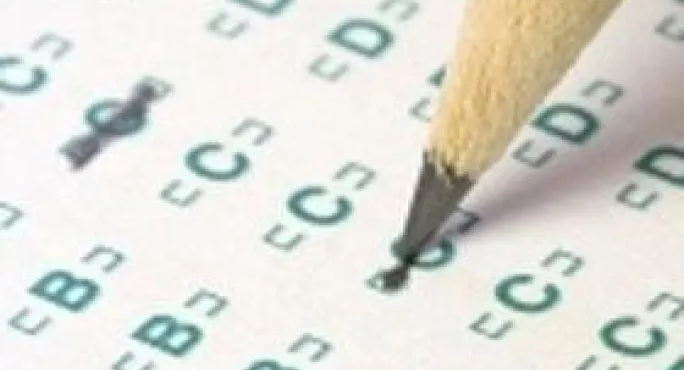Myth becomes reality in the Examiner’s world

When I was a kid in the Seventies, The Examiner was all that stood between me and Shangri La. He - and it was a “he” both in my mind and probably in reality too - would issue my passport to the real “me” I’d dreamed of since O-levels, crossing my little Welsh grammar playground with schoolbooks and progressive rock albums under my arm.
I lived on that edge for two years. My successful admission interview by “a long haired academic” (PM Jim Callaghan’s description) at a “hip” new university only intensified the pressure. So close, so far! And to the eternal turbulence of adolescence was added that of the 1970s. Housed with parents who left school - against their grain - at 14, and whose own higher education was denied them by the heavy iron gates of economic necessity, I was, like many of that cohort, the first in my family to have the chance. There was little sympathy or understanding. There was, however, that mythical Examiner. I wonder what he was like.
I imagine a “master” in the great tradition of Welsh learning. He would not need to be given a grid of criteria or a mark scheme - he would “know”.
Three decades later, “emeritus” head of English, I am the Examiner, marking a range of A-level papers for different boards in two countries. I receive the honed sum of all those lessons, projects, visits, reading and revision in examboard-livery packages.
How much has changed? Well, not the grades. It is fearsomely difficult to navigate modern papers - and teachers prepare students with neurotic care. Very few answers are not at the very least well coached in the “assessment objectives”. Whether this is the best way to educate our young readers is another matter - but they can answer torturous questions.
Examiners are graded now. The person marking your students’ papers might be getting a grade lower than your pupil for his performance.
So is my old examiner-professor absent? Not gone, but getting on. One such senior examiner laughed at my Dickens quip at a recent standardisation day in London. Others either didn’t get the reference or evidently felt humour to be out of place in the education “business”.
I’ve worked for team leaders whose care and attention makes me feel the whole system is running properly. I’ve worked for some who will be going to a Springsteen concert after the standardisation day - and whose enthusiasms make me feel part of a professional vocation, whose ease liberated me from the anxiety that makes you mark too tightly and thus badly. I’ve also worked for humourless nags, assessment-vortex merchants, who actually don’t seem to care about literature very much.
Not that we can abandon efforts to “measure” the quality of literature. But if a marker has to be given a day’s training and a tome of criteria to mark a response - that includes idiocies like “27 marks for that skill, three marks for this, though they are ultimately co-existent and equal; 15 each for the other two, one of which is always present anyway, period context to both include and yet not include other periods depending on how like the actual period the texts can seem - knowledge of text crucial but students can make their own meanings and if they don’t reference gender, genre, time and several other things at least once while they’re doing all that because they’re too busy deciding if a poem is any good or not” . then we are shoving an opaque reading criterion between student and the text, rather then enabling reading.
I have been in a room of examiners in London - let’s call it room 101 - where not one of the experienced professionals present, including the team leader, believed the script worth the grade the chief examiner had given it. We were told we had to suspend our disbelief and “catch” this standard.
Examining isn’t done like that - it is done alone, with exemplars and sets of criteria (and, yes, moderated by sampling and other checks) but essentially, and for three weeks, alone. You have to be able to trust your own judgment. Instead, we were asked to both trust - and suspend - our own judgment. To doublethink for ourselves.
My anecdotal evidence and experience (based on thousands of exam scripts in both countries) is that the Welsh traditions of reverence for literature and relative educational independence has managed the performance-indicator culture in a much more literary way than in England (cf. the pioneering rejection of Sats.) The writer and their reader - and their teacher - remains more central here than the tick boxer. Of course, there will be noble examples of this in all British A-level teaching and howling exceptions in Wales, but it has seemed to me harder to sustain intuitive reading on the “regular” side of the Severn.
Literature is nothing if not a route to oneself, and that must never change. The WJEC acknowledges an examiner’s efforts to read great texts and exam answers as a person not as a skills machine, which puts me on the same journey as that wannabe student crossing the playground. This is surely the way it should be done.
Keep reading for just £1 per month
You've reached your limit of free articles this month. Subscribe for £1 per month for three months and get:
- Unlimited access to all Tes magazine content
- Exclusive subscriber-only stories
- Award-winning email newsletters